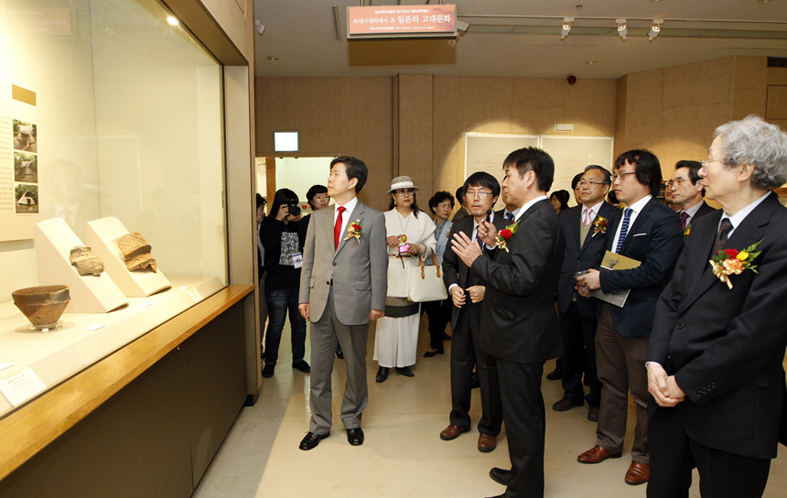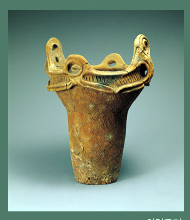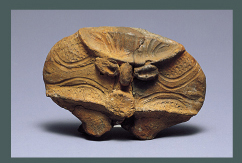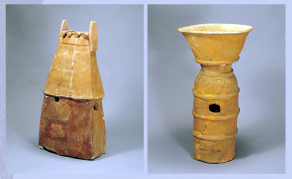First showing of ancient artifacts of Japan's Kanto region
Display 250 pieces from collection of Waseda University Aizu Museum
[April 28, 2011]

Special exhibit first showing the ancient culture of Japan's Kanto region, 'Ancient Japanese Culture from Waseda University' began at the Yeungnam University Museum on the 28th.
This exhibit that will continue until June 17 is the third museum exchange exhibit between Yeungnam University and Waseda University. Beginning with the 'Ainu comes to Korea - Life Culture Special Exhibit of Ainu in Japan' (Nov 20, 2008 - Mar 27, 2009) held at the Yeungnam University Museum in 2008, it was followed in 2009 by the 2nd Special Exchange Exhibit 'Korean Peninsula seen through Ancient Maps of Yeungnam University Museum' at the Aizu Museum of Waseda University in Tokyo, Japan.



There are 250 artifacts on display from the Kanto region that show the creative and unique ancient culture of Japan from the Jomon Period, Yayoi Period and Kofun Period. Most ancient Japanese artifacts exhibits held in Korea approached the comparative culture studies from a Korean perspective, and this is unique in the fact that it displays artifacts mainly from the Kanto region.
In particular, the earthenware, bone tools, shells, stone tools, etc of the Japanese Jomon Period, which is equivalent to the Korean New Stone Age, will help people understand the times, as well as the appearance and development of earthenware, the tools and technologies (stone, bone and shell tools) of the people of the Jomon, mentality (ornaments, funeral rituals), and other cultures of the Jomon. Earthenware of Yayoi period found in Waseda University campus shows that this is when rice-farming became widespread in Japan. Also, the metal artifacts and Haniwa, which are terracotta clay figures, from the Kofun Period, which is equivalent to the Three Kingdoms Period of Korea, show a hint of ancient Japanese culture when royalty was first established.
Meanwhile, Yeungnam University Museum offered various educational programs in relation to the exhibit with the sponsorship of the The Hahn Cultural Foundation. They include Korea-Japan archaeological seminars, gallery talks, 'at-your-door archaeological classes' for multi-cultural families, on-site experience education for kindergarten and elementary school students (making Jomon earthenware patterns, playing the artifact puzzle, etc), as well as commentaries for exhibits.
Professor Lee, Cheong-gyu (Department of Cultural Anthropology), director of Yeungnam University Museum, who planned this special exhibit, stated, "It will not only be an opportunity for better understanding of ancient Japanese culture, but will be a valuable exhibit that promotes cultural exchanges between the two countries."













